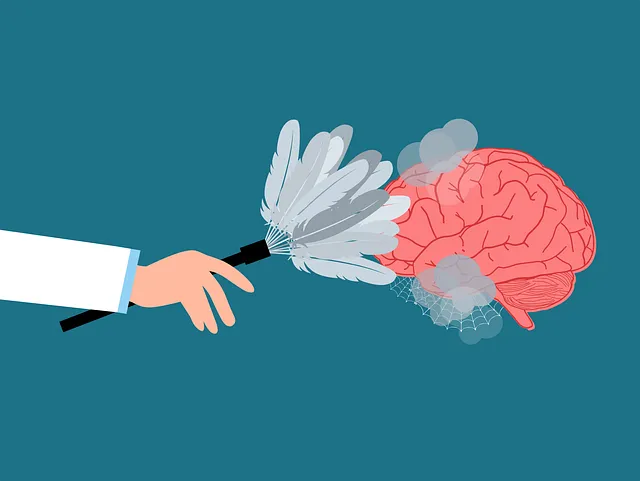The Lone Tree Kaiser Permanente mental health department offers powerful positive thinking exercises that focus on affirmations, visualization, and reframing negative thoughts, proven to improve well-being and prevent depression and anxiety. This holistic approach integrates mindfulness meditation and self-esteem practices to reduce stress, boost self-worth, and foster resilience. Spending time in natural settings like Lone Tree is encouraged for introspection, self-care, and empathy building, while the department tracks success through measurable goals and assessments, demonstrating tangible outcomes. Access services through the provided Lone Tree Kaiser Permanente mental health department number.
Positive thinking exercises have emerged as a powerful tool for enhancing mental well-being. This article delves into the effective implementation of such practices within the structured framework of Kaiser Permanente’s Mental Health Department. We explore how initiatives like those spearheaded by Lone Tree play a pivotal role in promoting holistic mental health. By integrating these exercises, Kaiser Permanente can significantly impact patient outcomes, as evidenced by measurable success rates and improved overall well-being.
- Understanding Positive Thinking Exercises
- Integrating Exercises into the Kaiser Permanente Mental Health Department Framework
- The Role of Lone Tree in Promoting Mental Well-being
- Tracking Success and Benefits: Measuring the Impact of Positive Thinking Exercises
Understanding Positive Thinking Exercises

Positive thinking exercises are a powerful tool within the realm of mental health care, specifically offered by the Lone Tree Kaiser Permanente mental health department. These exercises are designed to help individuals cultivate an optimistic mindset and improve their overall well-being. By focusing on positive affirmations, visualization techniques, and reframing negative thoughts, these strategies can be incredibly effective in depression prevention and anxiety relief.
The goal of such exercises isn’t to ignore or suppress difficult emotions but rather to build empathy within oneself and others. Through consistent practice, individuals can learn to navigate challenging situations with a more positive lens, fostering resilience and enhancing their ability to cope with stress. The Lone Tree Kaiser Permanente mental health department number provides access to these valuable resources, empowering folks to take charge of their mental health and embark on a journey of self-improvement.
Integrating Exercises into the Kaiser Permanente Mental Health Department Framework

At Lone Tree Kaiser Permanente mental health department, integrating exercises aimed at self-esteem improvement and compassion cultivation practices into their framework has shown significant promise in enhancing positive thinking among patients. The department recognizes that cultivating a positive mindset is not merely a therapeutic goal but a fundamental aspect of overall well-being. Therefore, they have incorporated various evidence-based techniques to promote positive thinking as a core component of their mental health services.
These exercises range from mindfulness meditation practices designed to reduce stress and anxiety, to affirmations tailored to boost self-worth and confidence. The integration of these activities into the Kaiser Permanente mental health department framework reflects a holistic approach that acknowledges the interconnectedness of mental, emotional, and physical health. By fostering positive thinking, patients are better equipped to navigate life’s challenges with resilience and a sense of inner peace.
The Role of Lone Tree in Promoting Mental Well-being

The Lone Tree, often seen as a symbol of resilience and tranquility, plays a pivotal role in promoting mental well-being, as recognized by the Kaiser Permanente mental health department. Spending time amidst nature, especially in secluded settings like this, has been linked to significant improvements in psychological health. The peaceful atmosphere of a lone tree offers a respite from the constant buzz of urban life, providing an opportunity for introspection and self-care. This natural setting encourages individuals to disconnect from their daily stressors and foster a sense of calm and clarity.
Integrating regular visits to such environments into one’s routine can contribute to the development of a robust self-care practice for better mental health. Moreover, the serene beauty of nature stimulates empathy building strategies, allowing individuals to appreciate the interconnectedness of all living beings. By prioritizing these natural experiences, whether through hiking, meditation, or simply sitting beneath its branches, people can effectively prevent burnout and cultivate a healthier mindset, as supported by Kaiser Permanente’s initiatives.
Tracking Success and Benefits: Measuring the Impact of Positive Thinking Exercises

Tracking success and benefits is a vital step in understanding the impact of positive thinking exercises implemented by the Lone Tree Kaiser Permanente mental health department. By quantifying improvements, professionals can measure the effectiveness of these practices in enhancing well-being. This process involves setting clear goals aligned with Mind Over Matter principles, allowing individuals to focus on specific areas for improvement. Regular self-assessments and reflections facilitate the identification of positive shifts, be it in emotional regulation or overall life satisfaction.
The Lone Tree Kaiser Permanente mental health department conducts risk assessments as part of its comprehensive approach, ensuring that benefits are not only subjective but also quantifiable. This includes tracking changes in stress levels, anxiety symptoms, and even physical health markers. By collecting data over time, the department can demonstrate tangible outcomes, making a compelling case for the value of positive thinking exercises within their practice.
Positive thinking exercises, as implemented by Lone Tree within the Kaiser Permanente mental health department framework, have shown significant potential in promoting mental well-being. By integrating these practices, the department has created a holistic approach that enhances patient care and improves overall mental health outcomes. The tracking of success and benefits highlights the value of such initiatives, demonstrating measurable impacts that contribute to a vibrant and resilient community. This model serves as a testament to the power of positive thinking in transforming lives, with a focus on accessibility and inclusivity for all.






